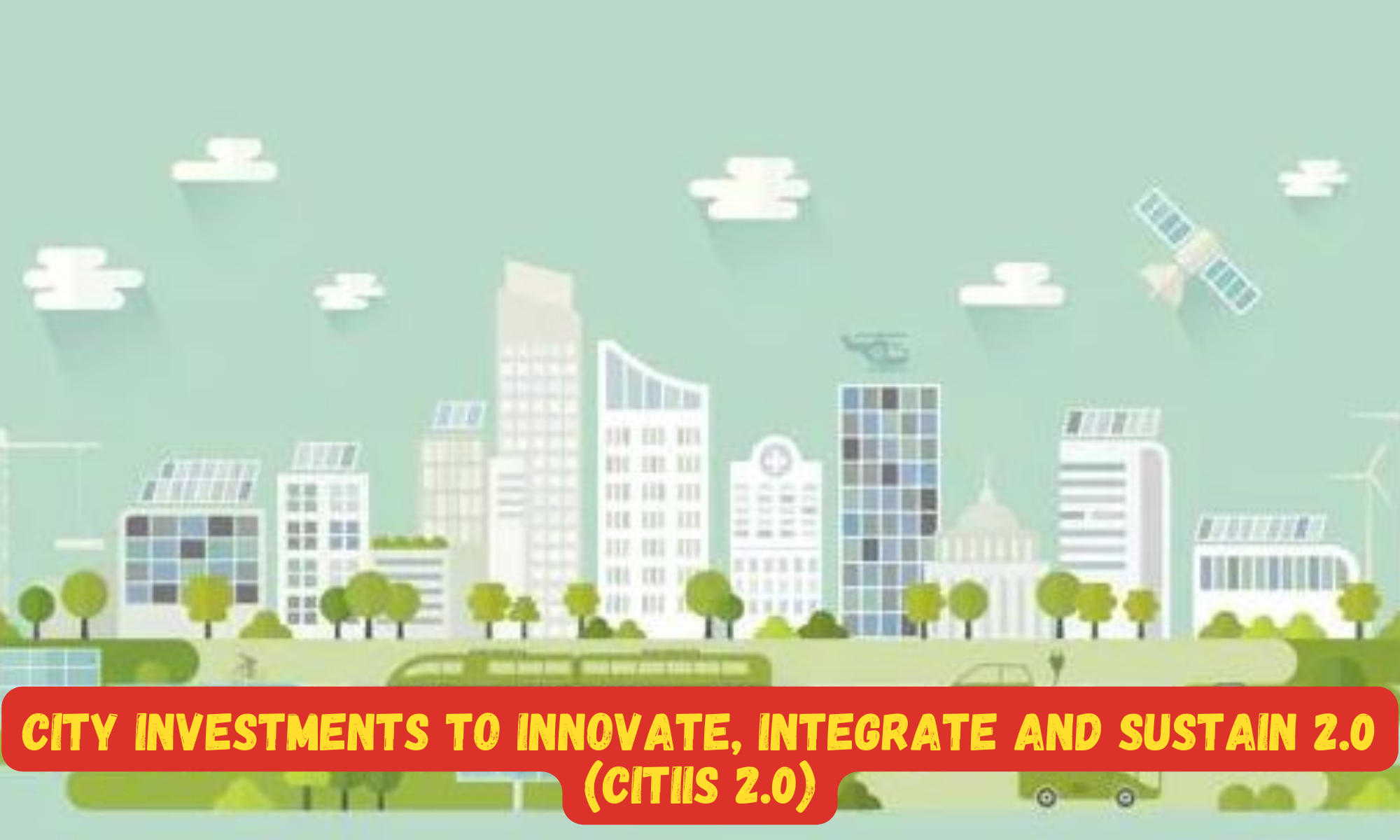Why the Scheme is in News?
The City Investments to Innovate, Integrate and Sustain 2.0 (CITIIS 2.0) program has been approved by the Union Cabinet, led by Prime Minister Shri Narendra Modi. This program, developed by the Ministry of Housing and Urban Affairs (MoHUA), in collaboration with the French Development Agency (AFD), Kreditanstalt für Wiederaufbau (KfW), the European Union (EU), and the National Institute of Urban Affairs (NIUA), will be implemented from 2023 to 2027.
Buy Prime Test Series for all Banking, SSC, Insurance & other exams
Introduction
CITIIS 2.0 aims to provide support to selected projects that promote circular economy practices, particularly focusing on integrated waste management at the city level. It also aims to implement climate-oriented reform actions at the state level and strengthen institutions and disseminate knowledge at the national level.
About City Investments to Innovate, Integrate and Sustain 2.0 (CITIIS 2.0)
The program builds upon the lessons and achievements of CITIIS 1.0, which was jointly launched in 2018 by MoHUA, AFD, EU, and NIUA. CITIIS 1.0 had a total budget of ₹933 crore (EUR 106 million) and consisted of three components:
Component 1: city-level projects selected through a competitive process
Component 2: Capacity development activities in the state of Odisha
Component 3: The promotion of integrated urban management at the national level through NIUA, which served as the Program Management Unit (PMU) for CITIIS 1.0.
CITIIS 2.0: Key Objectives and Benefits
Technical assistance was provided through the program at different levels using domestic, international, and cross-functional experts. This assistance has led to the adoption of innovative, integrated, and sustainable urban development practices through a financing model that emphasizes competition and collaboration between federal entities.
CITIIS 2.0, following the CITIIS 1.0 model, consists of three main components:
Component 1: Providing financial and technical support to develop projects that focus on enhancing climate resilience, adaptation, and mitigation in up to 18 smart cities. These projects will be selected through a competitive process and will promote a circular economy, with a specific emphasis on integrated waste management.
Component 2: All states and union territories (UTs) are eligible to receive support based on their demand. This support includes establishing or strengthening state climate centers/cells, creating climate data observatories at the state and city levels, enabling climate-data driven planning, developing climate action plans, and building the capacity of municipal officials. The National Institute of Urban Affairs (NIUA) will coordinate the provision of technical assistance and strategic support to state governments to achieve these objectives.
Component 3: Implementing interventions at the central, state, and city levels to enhance climate governance in urban India. This involves strengthening institutions, disseminating knowledge, fostering partnerships, building capacity, conducting research and development, and supporting scaling up efforts across all states and cities.
Funding of CITIIS 2.0
The funding for CITIIS 2.0 includes a loan of Rs. 1,760 crore (EUR 200 million) from AFD and KfW (EUR 100 million each), as well as a technical assistance grant of Rs. 106 crore (EUR 12 million) from the EU.
CITIIS 2.0: Vision
CITIIS 2.0 will complement the climate initiatives of the Government of India, including existing national programs such as the National Mission on Sustainable Habitat, AMRUT 2.0, Swachh Bharat Mission 2.0, and Smart Cities Mission. It will also contribute positively to India’s commitments under the Intended Nationally Determined Contributions (INDCs) and Conference of the Parties (COP26).
Also Read:
- Ayushman Bharat Pradhan Mantri Jan Arogya Yojana: Revolutionizing Healthcare Access in India
- NEP SAARTHI and NEP 2020: A Transformative Vision for India’s Education System
- Unlocking Financial Freedom: An Insight into the Liberalized Remittance Scheme (LRS)
- Leadership Development Programme in Science & Technology: Nurturing Next Gen Scientific Leaders



 Paris Olympics 2024 Medal Tally, India M...
Paris Olympics 2024 Medal Tally, India M...
 Which District of Madhya Pradesh is Famo...
Which District of Madhya Pradesh is Famo...
 EC Signs Electoral Cooperation Pact with...
EC Signs Electoral Cooperation Pact with...

